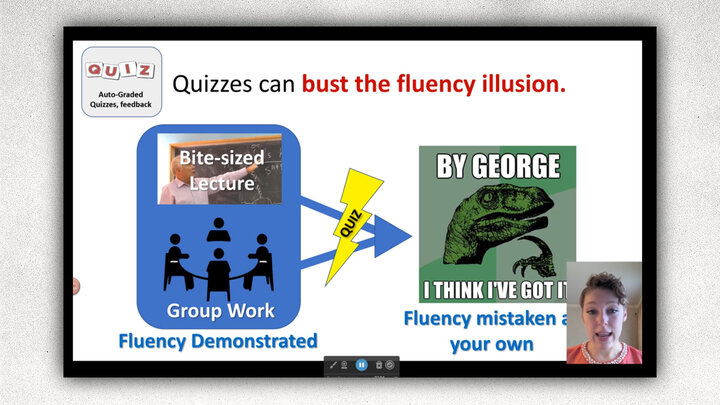September 9, 12pm-1pm
International Student and Scholar Office and the Center for Transformative Teaching
Watch the session recording on Yuja
Speaker: Andie Barefield, Office of Student Conduct & Community Standards
As Academic Integrity can vary around the world, this presentation aimed to explore issues and challenges around this topic, and how to support international students and their instructors as they navigate these differences.
Student Code of Conduct
- There has been a recent update in the Student Code of Conduct that changed reference to “someone” or “person” to be “person or entity.” This change is to cover the potential use of AI.
- Rather than implementing a blanket rule regarding AI use, the code allows wiggle room for instructors as the acceptable degree of AI use varies between courses.
- It is code of conduct violation if a student fails to follow the academic integrity policies stated in the course syllabus.
- The code also states that students cannot distribute course materials electronically or otherwise without expressed permission of the instructor.
- Five primary types of violations recognized: 1) Cheating; 2) Dishonesty, Falsification and Fabrication (Plagiarism), 3) Harmful Academic Actions towards others, 4) Improperly Helping Others, 5) Failure to follow the rules
Common Issues and Pitfalls
Cheating
- Copying another student's exam or assignment
- Using resources (including AI) which have not been allowed by an instructor
- Working with other students for non-groupwork assignments
Plagiarism
- Completing the more complex part of the assignment independently (e.g. mathematical calculations), but copying smaller aspects (e.g. annotations)
- Self-plagiarism: Not being aware that submitting the same work for different assignments is not allowed.
- Using Turn-it-in: international students may be unfamiliar with using plagiarism detectors and that their work is added to a collection
- Use of AI beyond allowed scope
Improperly Helping Others
- May provide classmates with a copy of their own assignment and the classmate then turns its in with no or minimal changes
- Using CourseHero for assignments they do not understand
Failure to follow rules
- Not recognizing strictness in exam conditions, such as that pulling out your phone to look at an incoming message counts as a violation
- Many international students have grown up with different academic procedures and expectations. While a lot of incoming students, local and international, may not have received explicit instruction on academic integrity prior to college, international students do not come in with the same understandings of what is acceptable in US schools. International students can often struggle with the idea that they are not allowed to do something that has not been explicitly banned.
Preventing and Handling Academic Misconduct
Include explicit communication
- Alongside sharing the Student Code of Conduct, instructors are encouraged to include explicit communication and/or instruction in the syllabus, assignment instructions and Canvas. This includes clear expectations of what resources are allowed and not allowed, as well as the consequences of misconduct.
- Faculty can aim to be explicit to what degree AI is allowed and why
- There is no dedicated medium for students to receive instruction on academic integrity such as orientation, so this mostly falls on instructors
- Instructors have the discretion to turn a violation into a learning opportunity rather than reporting academic misconduct, especially for a one-time occurrence. However, for repeated occurrences you are recommended to refer them to the student conduct office.
Writing
- Most translating bots have AI now which might not sound human and can lead to potential flags for academic misconduct
- Promote the writing center or ask a native speaker to proofread
- Allow pre-submit on turn-it-in
- Encourage student self-reporting if they are not sure if what they did was OK
- Communicate how academic misconduct affects instructors/faculty member
- Once identified, it is rare for someone to repeat academic dishonesty
Misconduct involving generative AI
- Caught by certain formatting or hiding words in the assignment prompt
- Implementing writing sample assignments in class to compare with papers
- When an assignment is too close to make a call, it can be sent to a hearing and panel which usually err on side of caution




